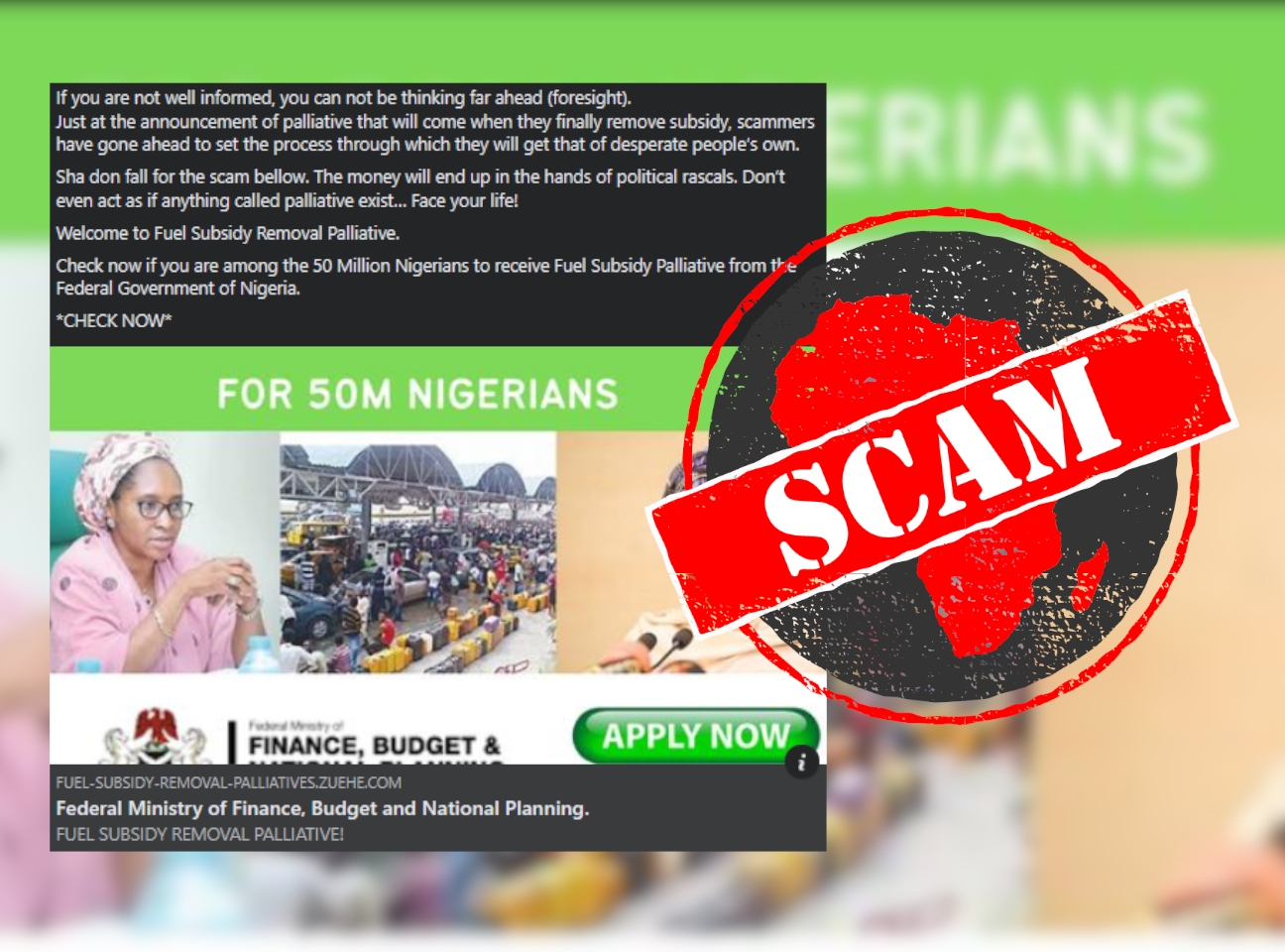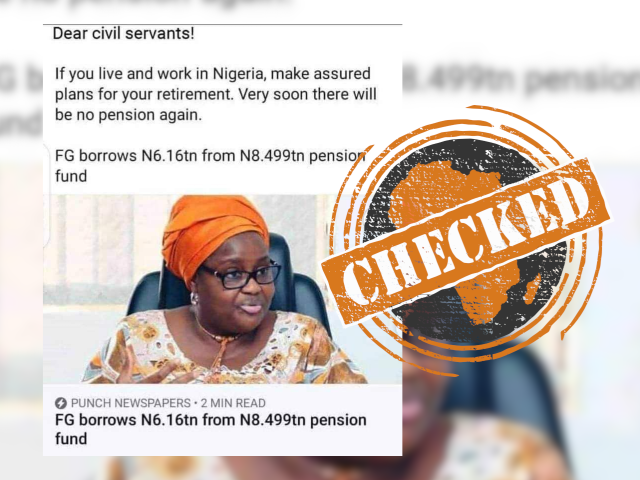IN SHORT: A link is spreading on social media in Nigeria, claiming to be to the registration portal for government aid recently announced by the federal ministry of finance and budget planning. But it’s a scam, potentially trying to steal people’s personal information.
A link to a website asking Nigerians to register for a “post-petroleum subsidy palliative” is circulating on Whatsapp and Facebook in Nigeria.
The webpage is headed “Fuel Subsidy Removal Palliative Portal”. It includes photos of Nigeria’s minister of finance Zainab Ahmed, a queue at a fuel station and the logo of the federal ministry of finance, budget and national planning.
An application form on the page asks for respondents’ personal details, including their contact details and local government area of residence.
The link was shared on Facebook here and here.
A message was also shared with Africa Check on WhatsApp, asking Nigerians to confirm if they are eligible for the subsidy and a link.
The Nigerian government wants to remove a subsidy on petrol by June 2023, saying the cost has become unsustainable.
But some Nigerians are concerned that this could lead to inflation and more hardship.
On 5 April Ahmed announced that the Nigerian government had secured US$800 million from the World Bank to support the most vulnerable Nigerians during this period.
The money would be shared to 10 million households registered in a national social register as a form of relief, or “palliative”, once the fuel subsidy ends.
But is this website asking people to register legit? We checked.

‘This is a scam’ says ministry
When you click on the “apply now” button on the site, you are taken to a sports betting site, not a registration portal.
Another red flag is that the site asks users for their personal details. This could be an attempt at phishing – stealing people’s valuable personal information. Scammers can then use this information to take control of bank accounts and more.
The federal ministry of finance on 11 April said the site was fake and warned people not to fall for the scam.
“FAKE: It has come to our attention that a website purporting to be that of the Nigerian ministry of finance, is registering Nigerians on a fuel subsidy removal palliative. THIS IS A SCAM!” the ministry said on its official Twitter account.
“We strongly condemn these scammers & call on Nigerians to be extra careful/vigilant."
Republish our content for free
For publishers: what to do if your post is rated false
A fact-checker has rated your Facebook or Instagram post as “false”, “altered”, “partly false” or “missing context”. This could have serious consequences. What do you do?
Click on our guide for the steps you should follow.
Publishers guideAfrica Check teams up with Facebook
Africa Check is a partner in Meta's third-party fact-checking programme to help stop the spread of false information on social media.
The content we rate as “false” will be downgraded on Facebook and Instagram. This means fewer people will see it.
You can also help identify false information on Facebook. This guide explains how.



Add new comment